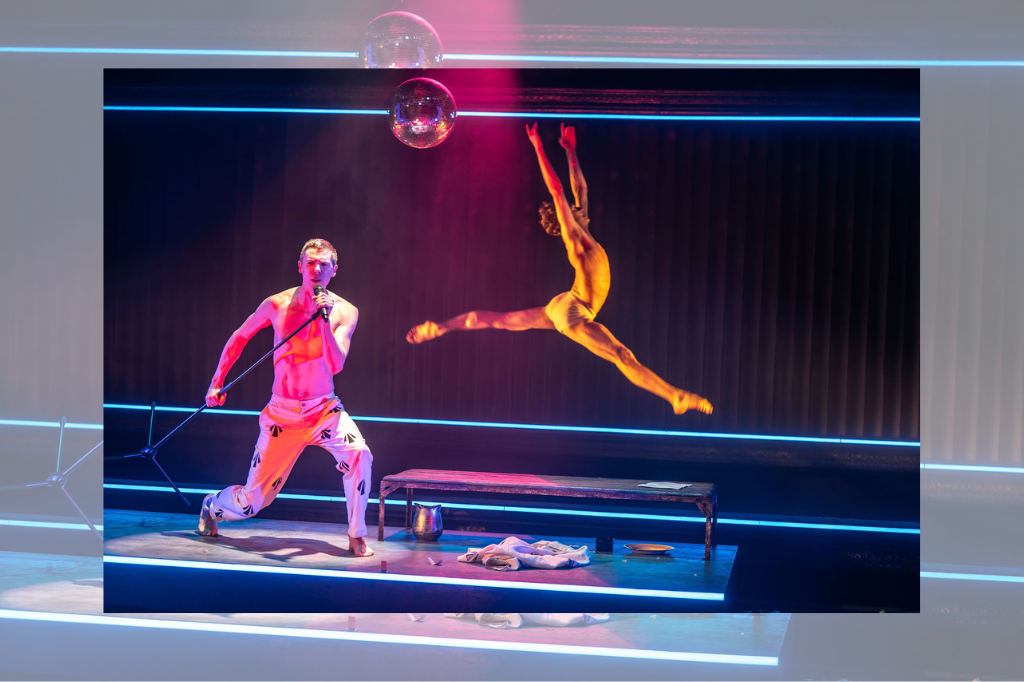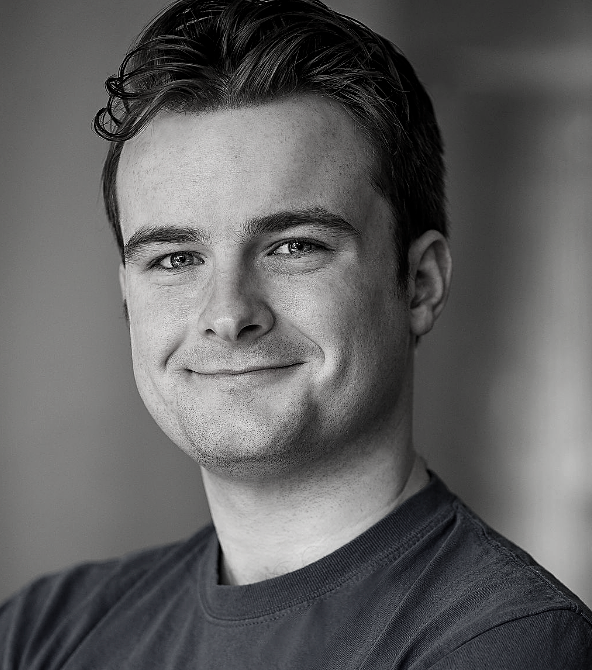REVIEW: Soulpepper’s rousing De Profundis vibrates with emotion and unpredictability
One of my favourite shows from last year, Necessary Angel Theatre Company’s Letters From Max, a ritual, was constructed out of real-life correspondence between a student and his teacher. The production’s sparse design worked because the actors’ connection burned like a star, illuminating the empty space.
Soulpepper Theatre’s De Profundis: Oscar Wilde in Jail is likewise based on a letter, one its titular Irishman wrote while imprisoned in England on charges of “gross indecency.” The 55,000-word communication, addressed to Lord Alfred “Bosie” Douglas, his lover, was never mailed. Perhaps that’s why the visual world of director-adapter Gregory Prest’s production sprawls with such generous abundance: unlike the reciprocity that defined Letters From Max, there is nowhere for Oscar’s energy to go but out, onto the stage. Prest captures this torrent of emotion and language with the help of a disarmingly mercurial dramatic structure, unspooled over 95 rousing minutes. The effect is incandescent and genuinely original.
De Profundis resides in that peculiar space between “musical” and “play with songs,” though this is a home of conviction rather than indecision. The show’s excerpts from Wilde’s letter are at times so lengthy that it begins to feel music will never again be heard. But then come a trio of songs back-to-back, before a return to the letter — or perhaps a playful sequence like the semi-improvised one in which Oscar makes the audience identify quotes from his complete works. (He gets most of the stage time, despite surreal appearances from Bosie, as well as the MC-like figure Robbie, who combine to make the show a three-hander.) The music itself, written by composer Mike Ross and lyricist Sarah Wilson (staples of Soulpepper’s music department), surfs between genres, from Irish ballad to Broadway razzle-dazzle to eerie electro-pop. The unpredictability of this dramaturgy belies the painful mundanity of Oscar’s prison sentence, during which he’s only allowed the writing of one page a day.
Set and lighting designer Lorenzo Savoini works in a similarly metamorphic register. The left and right walls of Oscar’s shadowy jail cell roll offstage early on, priming the show’s remainder to dramatize the extravagant chaos of its prisoner’s psyche. A rectangle of glowing wire borders the cell; others soon join it, creating a kind of neon tunnel. Frank Donato contributes projections of Oscar’s memories, adding to the visual noise (the more abstract of them succeed, a few are over-literal). And Ming Wong costumes our protagonist in a set of patterned modern-day pyjamas. The overall aesthetic is high-tech and contemporary, with the occasional Victorian detail reading as mere flourish.
Damien Atkins, that wiry, prolific virtuoso, plays Oscar. It’s a fleet-footed performance of extremes, speedily pivoting from mutter to yell, lip twitch to two-arm extension. He sings imperfectly, sometimes sacrificing tone for the good of character, as is preferable; there’s none of the stultifying polish that often suffuses the performance of musicals today.
Robbie, played by Jonathan Corkal-Astorga, offers an opening prologue before sitting down at the piano to become the show’s accompanist. And Colton Curtis plays Bosie, who haunts Oscar’s mind. But it’s my view that neither character needs to speak as much as they do, or even at all. Their words puncture Oscar’s solitude. How can he lament having not heard from Bosie when he clearly has? I realize their interactions are a mirage, but this is theatre, where embodiment is everything. Bosie’s presence is most effective when silent — as when, behind a shirtless, crooning Oscar, he performs a stirring ballet in underwear. A lesser production might need Robbie and Bosie’s lines for momentum’s sake. Yet because this one is so distinguished, their inclusion feels like overshooting (always superior to undershooting, I’d say).
Why the contemporary musical palette and design? Simply because the show is being performed here and now, I think. De Profundis isn’t about the historical Wilde. It’s about Atkins’ Oscar and his desperate need to be loved. A thin distinction, maybe, but an important one: the show uses its source as starting block, not finish line. It plunders Wilde’s prose for its riches and sprints with them, never looking back.
The original letter’s text contains the claim that “Art only begins where Imitation ends.” De Profundis takes that advice with more seriousness than could’ve ever been hoped for. Despite resembling no other show I’ve seen in Toronto, it isn’t particularly Wildean, either. It pierces the soul with live-wire style, traversing tragicomic trenches to find animation in the splotched-up grey of those reeling Reading prison walls. I’m tempted to say it’s a masterwork.
De Profundis: Oscar Wilde in Jail runs at Soulpepper Theatre until February 23. You can learn more about the production here.
Intermission reviews are independent and unrelated to Intermission’s partnered content. Learn more about Intermission’s partnership model here.













Comments